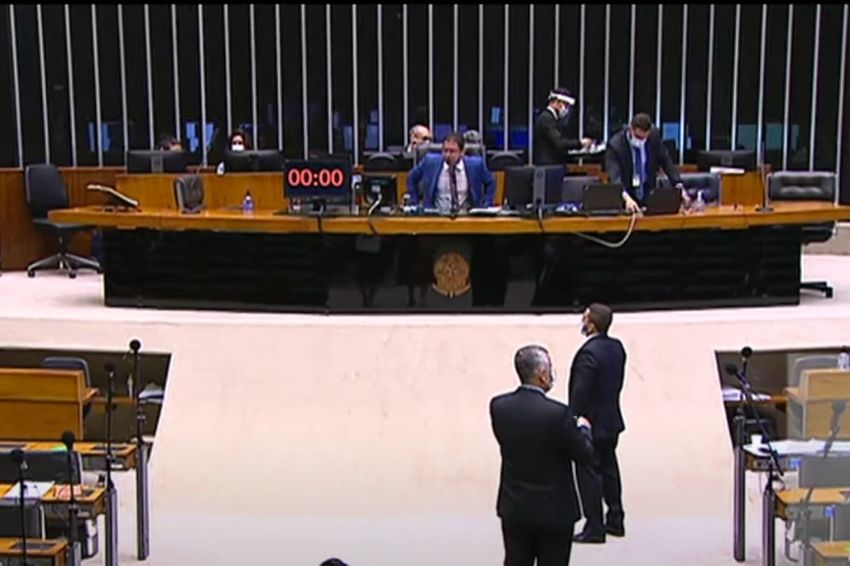Updated on May 7, at 8:12 am
PL 5829 (Bill No. 5829/2019) was removed from the agenda during discussions of the projects that were scheduled to be voted on by the Chamber of Deputies this Thursday (6). The proposal was removed from the agenda due to lack of consensus among parliamentarians.
“We were working to reach a consensus text that would also have the support of those who were initially against the PL. Unfortunately, there was no agreement, and due to lack of agreement it was agreed that we will vote next Wednesday”, stated the rapporteur of the proposal, Lafayette de Andrada (Republicanos/MG).
The document, which aims to create the Legal Framework for GD (distributed generation) in Brazil, was scheduled to be discussed in a single round, requiring only a simple majority quorum for approval.
The decision to vote on it on Thursday was taken two days earlier, last Tuesday (4), in a meeting that involved the presence of the text's rapporteur, deputy Lafayette de Andrada (Republicanos/MG), the leaders party members and the president of the Chamber, Arthur Lira.
At the time, parliamentarians met at Lira's house to reach a consensus on the measure and it was agreed that Lafayette would make some changes to its substitute report so that deputies could vote on the text this Thursday. The rapporteur did exactly that and changed some suggested points. (Look here the new replacement text).
However, the vice-president of the Chamber of Deputies, Marcelo Ramos (PL/AM), who presided over this Thursday's session, when reading the session's agenda, left out PL 5829. Canal Solar contacted the parliamentarian and Until the closing of this report, the deputy did not comment on the matter.
At the beginning of the week, the parliamentarian posted on his social networks that there was no understanding for voting on the proposal. “There is still no agreement to vote on the Distributed Generation project next Thursday. We have already made a lot of progress in the text, but we still have a fundamental issue regarding the post-transition period. I believe we will have convergence, but the text is not yet closed”, he wrote.
Ramos has positioned himself against the GD Legal Framework, harshly criticizing the proposals presented by rapporteur Lafayette. According to the parliamentarian, PL 5829 will make bills more expensive for Brazilian citizens.
In recent months, the text presented by Lafayette has motivated several debates on the subject. The proposal is positively evaluated by associations and professionals in the solar energy sector, who expect the document to resolve the impasse regarding the lack of legislation for the sector. The large economic groups, mostly formed by energy distributors, are against the project.
In the opinion of deputy Danilo Forte (PSDB/CE), president of the Parliamentary Front for Renewable Energy, GD needs a regulatory framework for micro and minigeneration. “They have the right to make their compensation, because, for the distributors themselves, they help supply energy at peak consumption times (during the day) and guarantee retribution on the network at times of lower productivity, especially in the case of of solar energy,” he said.
According to the parliamentarian, Brazil should take advantage of the fact that it has continental dimensions and a privileged natural condition for the production of clean energy. “We are already practically saturated in the capacity to create hydroelectric plants in the country. Therefore, we have to move forward and give more and more speed to alternative energies, such as wind energy and solar energy”, he commented.
During the session, deputy Charles Fernandes (PSD/BA) used the Tribune to defend the vote on the GD Legal Framework. “I ask the Presidency to put this project to a vote as quickly as possible (…) Brazil needs energy and we have great potential for renewable energy. We need to provide this condition so that businesspeople continue to invest in the sector. We see farmers and traders being able to have cheaper energy, but to do so, we need to urgently vote on this project”, he stressed.
With collaboration by Ericka Araújo















